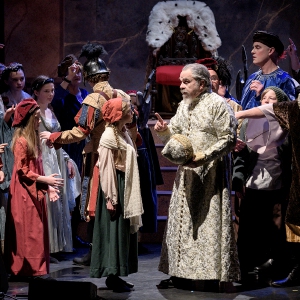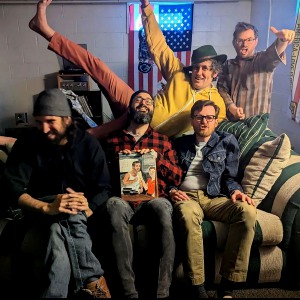Catching up with a food class at Billings Farm and Museum
| Published: 01-17-2023 3:01 PM |
On an icy gray morning, the subject at the Billings Farm & Museum learning kitchen was, appropriately, Cozy Stews and Breads, one of a series of adult classes that are part of the farm and museum’s Backyard Workshops. For Emery Gray, the chef at the Woodstock agricultural history museum, food is a “love language,” a way to share experiences, stories and memories.
The classes, led by different teachers, also are a way to demonstrate such cooking and gardening skills as canning produce, bread baking and beekeeping, with an eye toward self-sufficiency and sustainability.
Gray, who grew up in Connecticut, knew she wanted to be a chef in the third grade and pursued the profession as soon as she left high school, graduating from the Culinary Institute of America in Hyde Park, N.Y., with a degree in baking and pastry arts, and a bachelor’s degree in business management. She was a pastry chef for five years at the Woodstock Inn and Resort before moving to Billings Farm & Museum two years ago to develop culinary programming and to oversee the farm’s line of specialty cheddar cheeses. She also is involved in planning for an on-site food truck that the farm plans to introduce later this year.
“We share experiences through food,” she said. “It enhances debate and community.”
The 15 participants were interested in, among other things, making bread and soup during winter, making a one-pot meal, introducing vegetables to soup without reducing them to mush, and incorporating herbs or pestos into homemade bread.
The first item on Gray’s to-do list was a no-knead bread. “Bread is my love, my passion,” she said.
To fit what would ordinarily be an overnight rise, a second rise and a 45-minute bake into the 90-minute workshop, Gray showed off bread dough at different stages of the process. She mixed one batch fresh for the workshop, but also showed off a batch that had already risen overnight and a batch that had undergone a second rise.
Finally she put an uncooked, shaped loaf into a Dutch oven, lid on, that had already been preheated in the stove. Gray then slid the Dutch oven into the 450 degree oven. The enveloping heat of the Dutch oven mimics the steam of a professional bread oven, and results in what is called “oven spring,” the magical final rise of the loaf. The loaf bakes for 30 minutes with the lid of the Dutch oven on; for its last 15 minutes at the same temperature, Gray removed the lid, which helps, she said, to deepen the flavor and caramelize the crust.
Article continues after...
Yesterday's Most Read Articles
 Football helmet maker buys Lebanon’s Simbex
Football helmet maker buys Lebanon’s Simbex
 James Parker granted parole for his role in Dartmouth professors’ stabbing deaths
James Parker granted parole for his role in Dartmouth professors’ stabbing deaths
 Zantop daughter: ‘I wish James' family the best and hope that they are able to heal’
Zantop daughter: ‘I wish James' family the best and hope that they are able to heal’
 Kenyon: Dartmouth alumni join union-busting effort
Kenyon: Dartmouth alumni join union-busting effort
 Parker up for parole more than 2 decades after Dartmouth professor stabbing deaths
Parker up for parole more than 2 decades after Dartmouth professor stabbing deaths
 Through new school partnerships, CRREL seeks to educate young scientists
Through new school partnerships, CRREL seeks to educate young scientists
Gray then made a mulligatawny soup, a dish of Southern Indian origin. During the British colonial rule of India, the British adapted the Tamil dish to their own tastes, using curry powder or paste, cubed chicken, rice and apples. Gray also used celery, carrots and leeks.
Ranging closer to home for influences, Gray then prepared what she called a “cheeseburger” stew, which has some similarities with a Sloppy Joe or Bolognese sauce, but with two pounds of grated cheddar added. The sight of a waterfall of cheese being ladled into the stew pot elicited a “Wow” from the participants.
The 15 participants in the workshop were there for different reasons. Justin and Anna Kim, who live in Hartford and were there with their infant son James, became members of Billings Farm & Museum a month ago. They make soup frequently, and were there to pick up some tips. Two friends, Maria Markenson and Leslie Phillips, both of Quechee, had earlier taken Gray’s class on canning. At $10 per workshop, the price was unbeatable.
“I think they want to make it accessible,” Markenson said.
One of the lessons Gray wants to impart, she said in an interview after the workshop, is that there are straightforward and relatively simple ways to address sustainability, such as home canning and kitchen gardens. It is a subject that is often raised by the people who attend the workshops, she said.
“I definitely think it’s an awareness that has grown, especially with climate change,” Gray said.
In her job, Gray uses produce from the Billings Farm kitchen garden and dairy products and beef from the farm’s herd of Jersey cows. The farm also raises such livestock as sheep and goats, and hopes to add pigs this year, Gray said. They use Percheron draft horses and Lineback steers for some farm work, and for public education.
It is both the farm’s and her obligation, Gray said, to think about best agricultural practices, from humanely-raised animals to soil health to lessening food waste.
“The greatest joy is to have a platform where you can teach,” Gray said. “To be able to create dishes and to explain and to interact (with people)” is a privilege, she added.
For further information on workshops, and other Billings Farm & Museum programming, go to billingsfarm.org or call 802-457-2355.

 Art Notes: After losing primary venues, JAG Productions persists
Art Notes: After losing primary venues, JAG Productions persists  Over Easy: Marvels in the heavens, and in the yard
Over Easy: Marvels in the heavens, and in the yard  Amid financial difficulties, Lebanon-based Revels North cancels midwinter show
Amid financial difficulties, Lebanon-based Revels North cancels midwinter show  Art Notes: The Pilgrims to perform ‘last’ show Saturday in Hanover
Art Notes: The Pilgrims to perform ‘last’ show Saturday in Hanover
